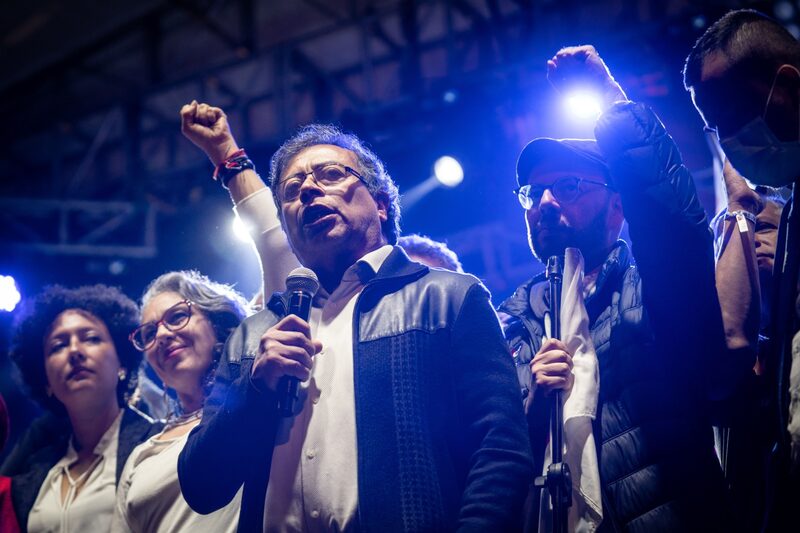Bloomberg — Bond investors look more concerned about the rising odds of a leftist president in Colombia than in Brazil, asking for higher yields from the former even as it has a better rating.
Colombia’s dollar notes are trading with yields above those of lower-rated Brazil as leftist candidate Gustavo Petro leads polls ahead of the May presidential election. In Latin America’s largest economy, meanwhile, investors appear to have embraced the return of former leader Luiz Inacio Lula da Silva to power in the October election.
The yield differential is a rarity, as Colombia has historically paid less than its neighbor to borrow in overseas capital markets due to its higher credit rating and lower debt levels. But while both presidential candidates have already spooked investors with their market-unfriendly rhetoric, Petro would be the first leftist leader in his nation, while Lula is a familiar face in his country. Colombia will hold primary and congressional elections on Sunday.
“The market is clearly expressing that Colombia’s fiscal risk is now more similar to Brazil’s than to those of the other peers,” Mario Castro, a fixed income strategist at BBVA, said in an interview from New York. “Colombia started the pandemic already with a weak fiscal position compared to peers that turned even worse after the fiscal aid provided.”

Colombia’s BB+ rated bonds due 2031 pay a premium of about 30 basis points over similar-dated notes from BB- rated Brazil, up from a discount of 50 basis points six months ago. Not only Colombia now trades close to emerging-market countries rated two notches below, but also Brazil is more comparable to those scored two levels above.
Credit default swaps also give a hint on how investors see the outlook for the two nation’s finances under the new leaders. It now costs about the same to insure bonds from both countries against default, while for most of the past decade Colombia was seen as safer.
Colombia lost its investment-grade status last year after the congress failed to approve a structural tax reform to fix its widening fiscal deficit after the pandemic spending rose and its debt to gross domestic product increased to more than 60%. Brazil’s credit rating was cut to junk in 2015 and its debt exceeds 80% of GDP.

Petro, a former Bogota mayor who has urged for higher tariffs to protect local production, has led all major polls by a wide margin ahead of the May election. Waving flags of progressivism and environmentalism, he’s pledged to halt oil exploration and to phase out extractive industries in a bid to transition to a knowledge-based, tourism-driven economy. Oil and coal currently account for nearly half of the nation’s exports.
If polls are right, Petro’s political alliance known as the Historic Pact would have the largest support in Sunday’s primaries -- although it’s not clear whether that will translate into support to build majorities in Congress. He wants to form a new global bloc calling ideological allies such as Chile’s President Gabriel Boric and Brazil’s Lula to lead the regional economy away from fossil fuels.
In Brazil, it took Lula just a hint of moderation earlier this year for investors to turn outright bullish in the country and fuel a world-beating rally in stocks and the currency, lured by high yields and cheap valuations. Lula, who was president of the South American giant from 2003 to 2010, has led early election polls and looks set to take regain control of the country against the right-wing incumbent Jair Bolsonaro.
“It is clear that Colombia has a much greater external vulnerability, which could explain part of this risk increase,” said German Cristancho, a strategist at Corredores Davivienda brokerage. “However, it’s possible that something similar to what happened in Chile or Peru occurs in Colombia, where after the presidential elections a normalization of risk premiums more consistent with the credit rating occurs.”

